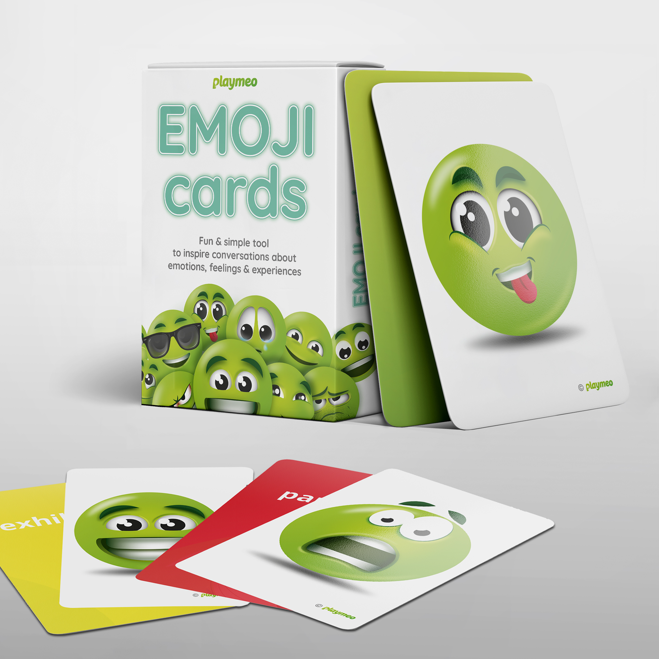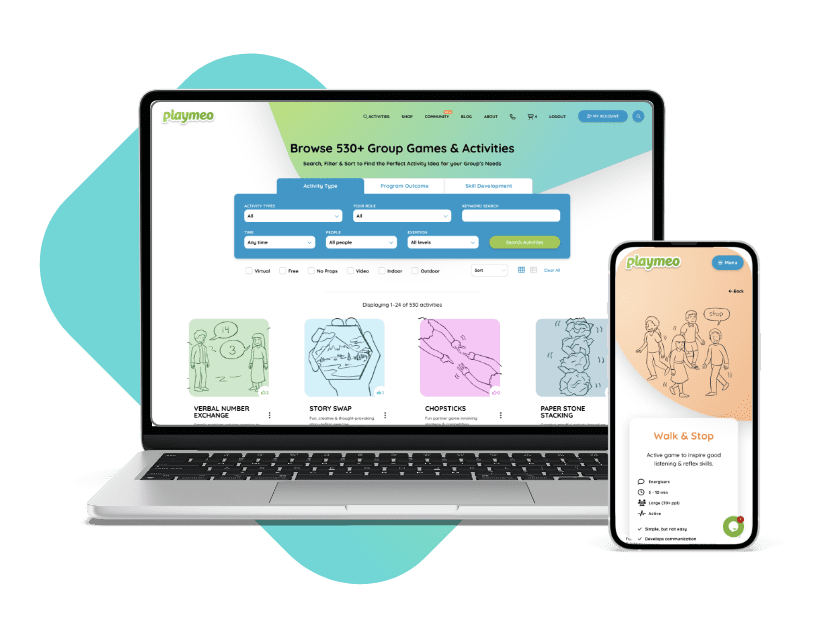Download our free 28-page ebook jam-packed with outrageously fun activity ideas.
There are many group leaders who are challenged to include and value the contribution of people who do not speak and/or understand the native language, ie English for instance.
In the case of cosmopolitan Melbourne, I know of some classrooms in which there are more than 12 different languages spoken at home! This makes (a) activity instructions and (b) conversations among group members problematic.
This was exactly the situation for Greg, a playmeo member, who reached out specifically to help me workshop a long list of non-verbal games and activities he could use with his (mostly) refugee and migrant students.
Keeping It Safe
No matter your language or skill level, we all want to feel acknowledged, valued and, above all, feel that our contribution can be included.
Putting aside any health and safety precautions that may be necessary to keep your groups safe during the current pandemic, Greg and I discussed two further key elements that elevate the safety of our programs:
- Inject Fun – as discussed here, you can never have too much fun. Fun is contagious, it’s hard to look cool when everyone else is having fun and it just feels good inside. Fun greases the wheels of play and interaction, which lead to sharing which, of course, generates trust. The more trust, the more safe your groups are.
- Select Non-Verbal Activities – as a very strong and articulate communicator, I must be very careful not to pepper my programs with too many activities that leverage these skills. Where possible, I intentionally sprinkle a generous dose of non-verbal activities to even out the playing field so to speak, especially in groups where I am aware that some people possess stronger language skills than others.
To the second point, we built a very quick and long list of activities featured within playmeo’s activity database that are wholly non-verbal (ie they typically need no more than a demonstration of what to do) or mostly non-verbal in that they rely heavily on no language skills.
List of Non-Verbal Activities
This is by no means an exhaustive list of activities that are wholly or primarily non-verbal in their nature. For balance, we focused on a selection of 21 x icebreakers, group games, trust-building exercises, team building initiatives and a few reflection strategies:
- Gotcha
- Circle The Circle
- Clapping Game
- Copy Claps
- One-Two-Three
- Mirror Stretch
- About Now
- Finger Snaps
- Psychic Handshakes
- Mute Line Up
- BF Skinner
- Five Handshakes in Five Minutes
- Poker Face
- Walk & Stop
- Coming & Going of the Rain
- Negotiation
- EMOJI Cards
- Climer Cards
- Fist to Five
- Spectrums
- Traffic Light Debrief
What non-verbal activities do you know and use in your programs?
Please share in the Comments section below (login first.)













Original post March 2022, last updated October 2024.